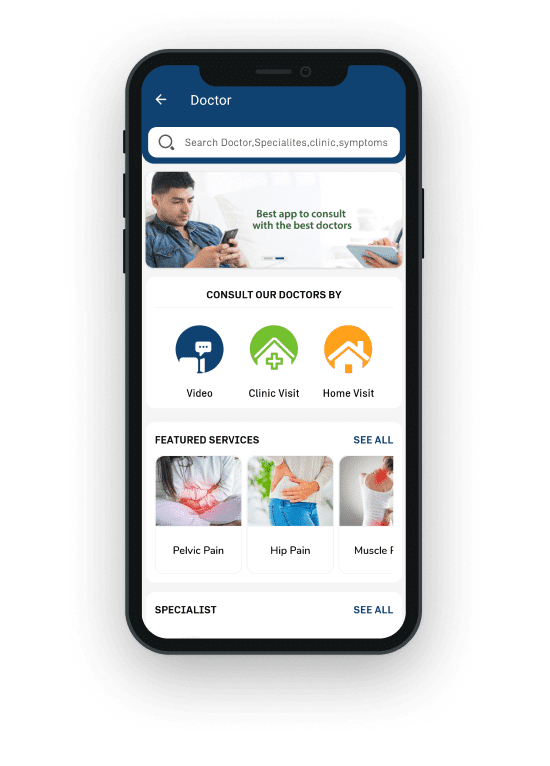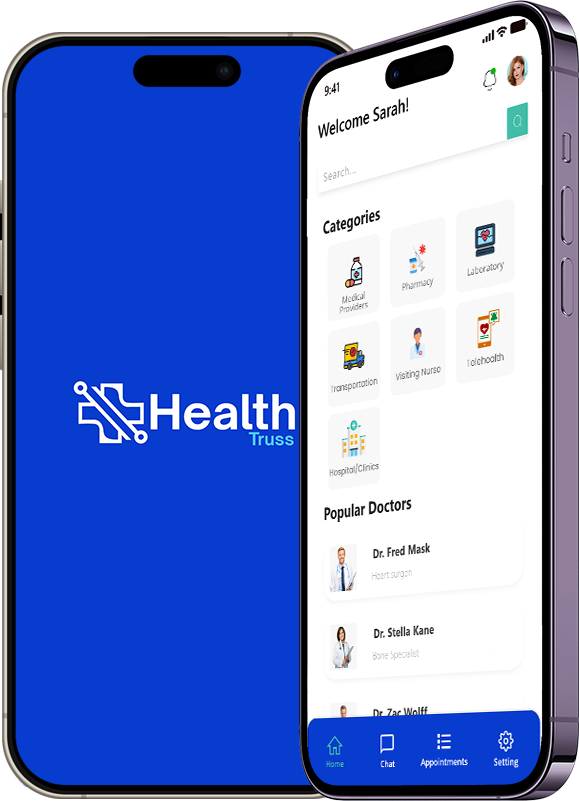The Future of Health Care: Why Clinics Required a Mobile App Today
As the medical care landscape continues to advance, clinics face installing stress to adapt to individual assumptions for better ease and accessibility. The combination of mobile applications can offer as an important strategy for enhancing patient involvement and improving procedures.
Changing Patient Expectations
As the landscape of healthcare progresses, person expectations are going through a considerable transformation. Today's patients are progressively seeking comfort, access, and personalized treatment.
Additionally, patients are becoming a lot more notified and empowered, commonly investigating problems and treatments on-line before consultations. This increased understanding is coupled with a demand for openness in healthcare procedures, consisting of expense price quotes and treatment options. As an outcome, carriers are obliged to adjust by embracing digital devices that improve the client experience.
The assumption for efficient and timely interaction has actually never ever been higher, with lots of individuals thinking about responsiveness an essential part of top quality care. mobile app for clinics. In this evolving landscape, medical care organizations need to recognize these transforming expectations and utilize mobile applications to promote an extra patient-centric technique, making certain that they not just satisfy however exceed the requirements set by today's informed consumers
Enhancing Person Engagement

Mobile applications assist in interaction in between patients and health care suppliers, making it possible for real-time consultation organizing, suggestions for medicine adherence, and straight messaging functions. These functionalities not only improve convenience yet likewise build a sense of accountability among individuals. Furthermore, mobile applications can provide educational content tailored to private requirements, helping individuals better recognize their problems and treatment choices.
The assimilation of gamification components within healthcare applications can likewise encourage clients to take part in healthy behaviors, reinforcing positive way of living modifications. By tracking progress and gratifying achievements, individuals are much more most likely to stay devoted to their health goals. Inevitably, enhancing patient engagement via mobile applications causes enhanced health and wellness results, greater person contentment, and a more collaborative health care experience. Clinics that prioritize this facet will likely see a significant influence on the high quality of care provided.
Improving Facility Operations
Improving center procedures is necessary for boosting process performance and maximizing patient care. The execution of mobile applications can dramatically decrease management concerns, enabling medical care companies to concentrate much more on client communications. By automating consultation organizing, patient check-ins, and invoicing processes, clinics can minimize wait times and improve overall functional efficiency.
Mobile apps also assist in real-time access to person records, allowing health care experts to make informed decisions promptly. This immediacy not only enhances the high quality of care yet additionally lowers the possibility of mistakes associated with misplaced or outdated info. Furthermore, leveraging mobile technology sustains why not try these out an extra orderly method to taking care of client follow-ups and treatment plans, making sure that no crucial steps are forgotten.
Furthermore, mobile applications can streamline stock administration by supplying clinics with tools to keep track of products and medicines effectively. This permits timely replenishment and aids avoid disruptions in person treatment as a result of equip shortages. By integrating these performances into their daily procedures, facilities can develop a much more reliable and cohesive atmosphere, eventually bring about boosted patient results and complete satisfaction. Accepting mobile modern technology is not just a trend; it is a required development in the medical care landscape.
Improving Interaction Networks
Effective communication is frequently pointed out as a cornerstone of quality health care delivery. In today's busy clinical environment, mobile applications can substantially improve communication networks between centers, clients, and doctor. By incorporating mobile applications into their procedures, clinics can promote real-time interactions, making sure that people receive prompt information regarding their visits, test outcomes, and therapy plans.
Mobile applications additionally equip individuals to connect directly with their healthcare teams with safe messaging functions. This straight line of interaction fosters a feeling of interaction and allows for immediate clarification of issues, which can cause better adherence to therapy methods. Press notifications can remind individuals of upcoming visits or medicine timetables, lowering no-show prices and boosting overall health and wellness end results.

Remaining Affordable in Medical Care
In a swiftly advancing medical care landscape, organizations must prioritize technology and adaptability to keep an one-upmanship. The combination of mobile applications right into health care services is no more optional; it is necessary for facilities aiming to improve patient interaction, enhance operations, and boost total more tips here service delivery.
As patients progressively count on digital systems for health management, centers that fall short to adopt mobile innovation threat falling back. A well-designed mobile app can offer attributes such as appointment organizing, telemedicine assessments, and accessibility to medical records, giving people with comfort and promoting commitment.

Competitors are also purchasing mobile services, so remaining ahead calls for constant improvement and remaining educated concerning technical advancements. Facilities should not just carry out mobile applications but also take part in normal updates and refinements. Eventually, the successful assimilation of mobile technology will certainly identify forward-thinking health care companies and established the standard for patient-centric treatment in an electronic globe.
Verdict
In conclusion, the integration of mobile applications in centers is important to deal with the developing landscape of client assumptions. Ultimately, the tactical application of mobile applications represents a critical action toward supplying accessible and personalized health care, consequently meeting the needs of today's equipped patients.
Eventually, boosting person involvement via mobile applications leads to boosted health and wellness outcomes, greater person complete satisfaction, and a much more joint health care experience.Mobile applications also promote real-time access to individual documents, making it possible for healthcare professionals to make enlightened decisions swiftly. In click today's busy clinical setting, mobile applications can significantly enhance interaction networks between clinics, individuals, and health care providers.Mobile applications likewise encourage clients to interact straight with their health care groups via safe messaging attributes. Inevitably, the calculated application of mobile applications stands for an important step toward providing individualized and obtainable healthcare, thereby meeting the demands of today's encouraged clients.